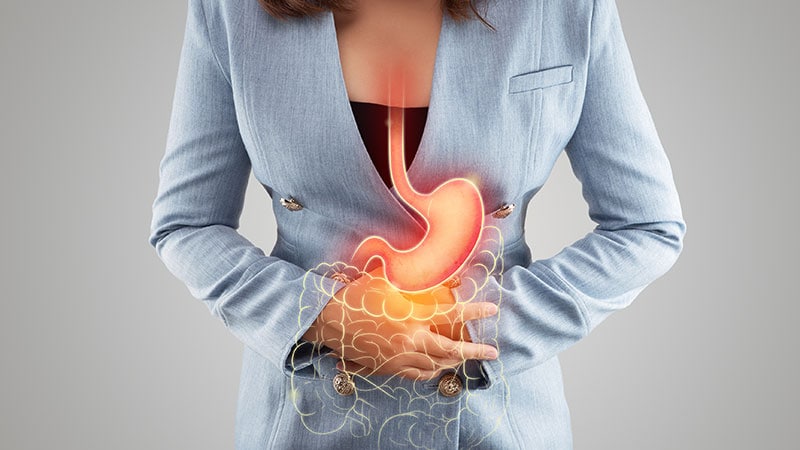TOPLINE:
Patients with Crohn’s disease who undergo terminal ileum resection have a significantly higher risk of developing colorectal cancer (CRC) and colorectal polyps than those who do not undergo resection.
METHODOLOGY:
-
Up to 70% of patients with Crohn’s disease undergo ileocecal resection, which increases colonic bile acid flux exposure and potentially promotes induction of tumorigenic pathways. However, the direct impact of terminal ileum resection on CRC risk in Crohn’s disease remains uncertain.
-
Researchers conducted a retrospective cohort study (2005-2024) using U.S. electronic health record data from adults with Crohn’s disease to assess the association between terminal ileum resection and CRC risk.
-
The primary outcome was the risk for CRC in patients with and without terminal ileum resection.
-
Secondary outcomes included the risk for CRC based on biologics use and colonic involvement, and risk for benign colonic polyps.
TAKEAWAY:
-
Researchers included 13,617 patients with Crohn’s disease who underwent terminal ileum resection (mean age, 39.5 years; 51.3% female) and an equal number of matched controls without resection.
-
Terminal ileum resection was associated with a significantly higher risk for CRC (adjusted hazard ratio [aHR], 2.58; P < .001), which was consistent in both men (aHR, 4.23; P < .001) and women (aHR, 2.43; P < .01).
-
Elevated CRC risk persisted regardless of colonic involvement (P < .01).
-
CRC risk did not significantly differ between patients who received biologic therapy and those who were biologic naive.
-
Patients with resection also had a higher risk for nonmalignant colonic polyps (aHR, 1.11; P < .01), which was consistent in both men and women (P < .01 for both).
IN PRACTICE:
“Our findings highlight the need to reassess CRC surveillance strategies in patients with [Crohn’s disease] post-[terminal ileum] resection. While current guidelines focus on inflammation-related risk, our results suggest that surgical history itself is an independent risk factor,” the authors concluded.
SOURCE:
This study was led by Inas Mikhail, MD, Mayo Clinic, Jacksonville, Florida, and Omar Al Ta’ani, MD, Allegheny Health Network, Pittsburgh, Pennsylvania. It was published online in Inflammatory Bowel Diseases.
LIMITATIONS:
The retrospective design may introduce biases related to reporting, selection, and follow-up. Residual confounding factors may have persisted despite propensity score matching. Due to a lack of data on bile acid profile and inflammatory burden, it could not be determined whether dysregulation of bile acids was directly involved in CRC risk.
DISCLOSURES:
This study authors reported no specific funding or conflicts of interest.
This article was created using several editorial tools, including AI, as part of the process. Human editors reviewed this content before publication.
Source link : https://www.medscape.com/viewarticle/ileal-resection-tied-higher-crc-risk-crohns-disease-2025a1000hqs?src=rss
Author :
Publish date : 2025-07-03 16:20:00
Copyright for syndicated content belongs to the linked Source.
